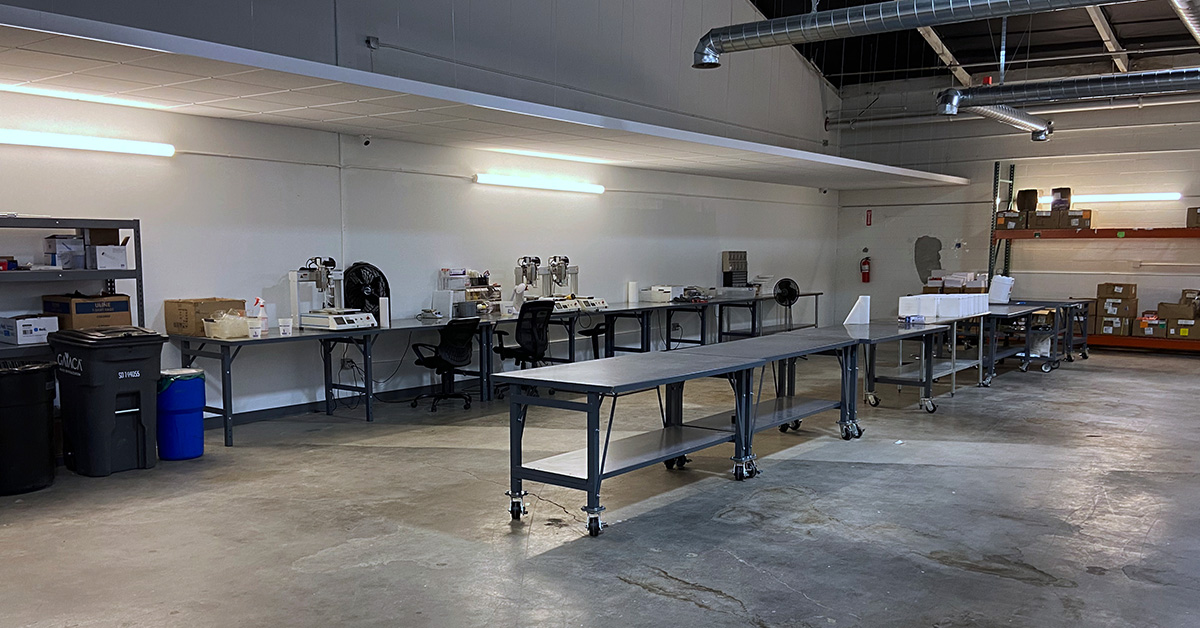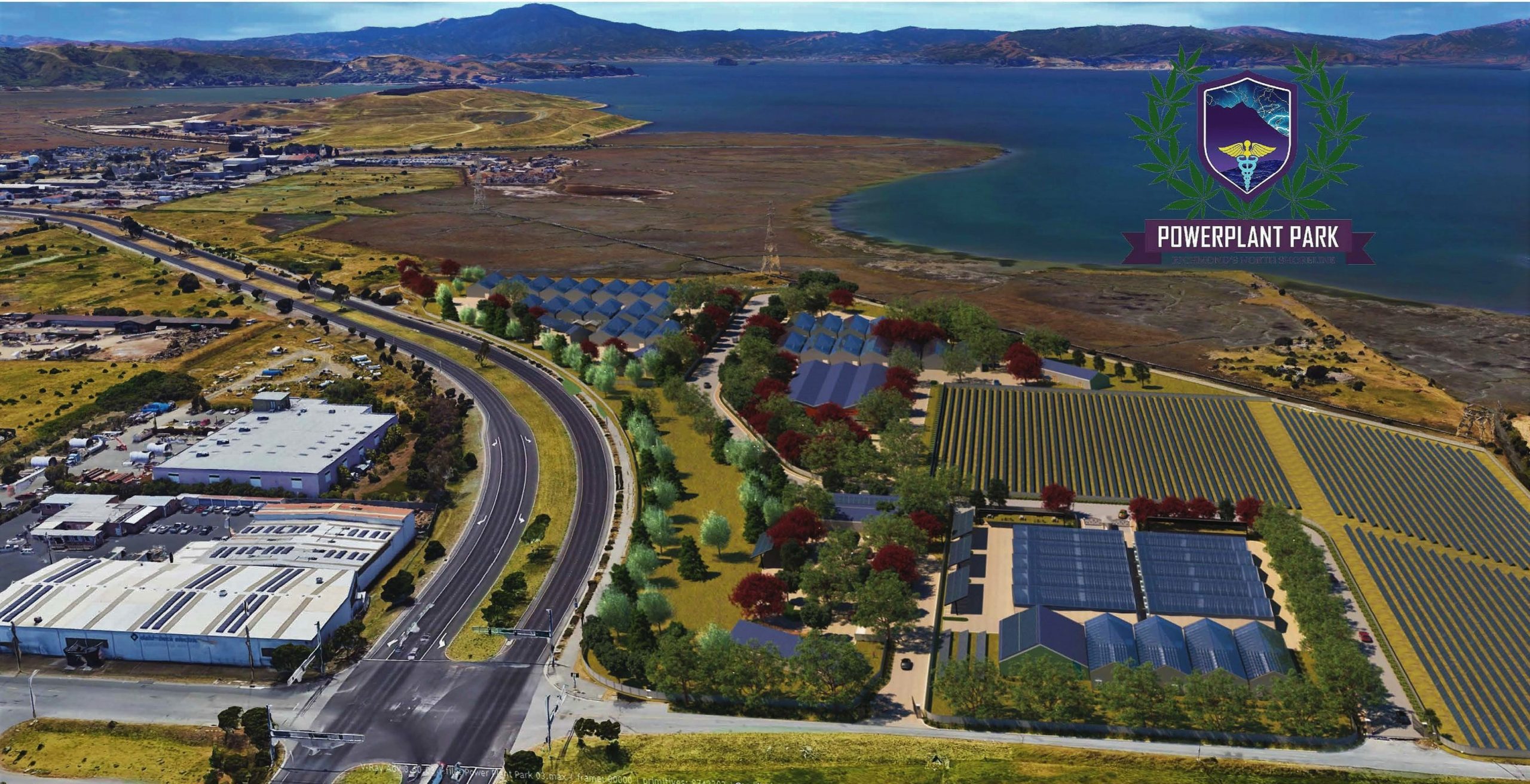Should I Invest in Legal Marijuana & Cannabis Industry?

So you want to invest in the legal cannabis market, eh?
Can’t say I blame you; legal cannabis is a nascent industry which, while it appears to be fully ensconced in hormone raged puberty, is poised for greatness as it nears adulthood. Tread carefully however, and heed red flags at every step. Much like a rebellious teenager, the legal cannabis industry is a bit unpredictable, and its parent’s guardrails are overly restrictive.
 The best piece of advice I can give is to seek out trusted advisors. DO NOT ATTEMPT THIS ON YOUR OWN…. especially if you’re new to the industry. You may be a gifted entrepreneur. You may have a great team of researchers and analysts. You may have a long, successful history of starting or acquiring businesses. You may even be a great negotiator. I don’t doubt you have those skills, but the landscape of the legal cannabis industry is rife with confusing laws, odd terminology, overreaching regulations, burdensome taxation, federal prohibition, price gouging vendors, criminal enterprises, and more! But cannabis is the future, and the future is now.
The best piece of advice I can give is to seek out trusted advisors. DO NOT ATTEMPT THIS ON YOUR OWN…. especially if you’re new to the industry. You may be a gifted entrepreneur. You may have a great team of researchers and analysts. You may have a long, successful history of starting or acquiring businesses. You may even be a great negotiator. I don’t doubt you have those skills, but the landscape of the legal cannabis industry is rife with confusing laws, odd terminology, overreaching regulations, burdensome taxation, federal prohibition, price gouging vendors, criminal enterprises, and more! But cannabis is the future, and the future is now.
So, if you want to be a part of the federally legal game (which could happen any moment now…. or much, much later), then you better get in now and you better do it right.
In this article we’ll look at some of the ways to invest in cannabis and how to avoid various pitfalls. There is no shortage of listings on the market. One look at 420Property.com, CannaMLS, CREXI, or BizBuySell can send the average buyer into a never-ending loop of available options; some of which are duplicates and triplicates of the same opportunity being posted by multiple brokers. Some are wildly over-priced. Some are not even legit.
If you’re going to take a crack at becoming a canna-investor, then you need a competent professional at your side, helping you make sense of an overwhelming amount of information.
A canna-investors options vary and will depend on their own personal risk profile and appetite.
A canna-investor can:
-
- Become a cannabis landlord
- Originate a retail cannabis business permit
- Purchase a fully operational cannabis business
- Purchase a pre-operational cannabis license and complete requisite steps to become operational
- Op-ex and/or cap-ex investment/lending opportunities
- Purchase distressed assets
- Alternative Concepts
Each of these options above have a myriad of sub-categories and challenges, which look something like this:
Become a Cannabis Landlord
The more risk-averse canna-investor opts to become a cannabis landlord, where returns can be 2-3 times standard CAP rates. This is an attractive bargain, but these returns are high for several reasons associated with perceived risk: i) higher mortgage rates for properties occupied by a cannabis tenant; as it turns out, one of the issues with federal prohibition is that FDIC insured banks do not allow loans to be issued on properties which are occupied by businesses which buy, sell, grow, manufacture, or distribute Schedule 1 narcotics, which sadly cannabis is still considered, ii) additionally, because of both federal scheduling and antiquated cannabis opinions, not all landlords are willing to lease to cannabis businesses, and iii) zoning for these properties is about as confusing as a rubix cube. Put ‘em all together and these issues compound to cause a supply and demand imbalance which creates a “cannabis premium” on these lease and sale values. Additional challenges in becoming a cannabis landlord are 1) not overpaying for an asset just based on its cash-flow, 2) acquisition timing, and 3) tenant failure.
Not to fear! WeCann is here! Having successfully negotiated over 100 cannabis real estate and M&A deals, we know how to negotiate these deals and how to find them. Our co-founders have been sourcing, listing, leasing, and selling “green-zone” properties since 2014. We have created protocols and systems to map compliant properties, database contact information, and cold-call owners of potential cannabis properties. More importantly, we are valuation experts. We know where the market is, and which operators are worthy tenants for your investment dollars. We track municipal level regulations so we can identify properties before a cannabis boom explodes into an over-priced feeding frenzy. We know the lenders who offer the most competitive lending rates and terms.
If you’re looking to become a cannabis landlord you can:
- Acquire a property pre-application phase, and lease it to a cannabis applicant
- Purchase a property in a sale-leaseback
- Purchase a performing, cannabis leased asset
- Acquire and develop vacant land
One important benefit of becoming a cannabis landlord now is the potential windfall gains when federal scheduling occurs. This will open up FDIC insured banks to the prospect of lending and banking for the industry. In turn, this will put cannabis leased investments into a high-demand category causing CAP rates to compress allowing owners to cash-in. Not only that, re-scheduling or de-scheduling will create a stronger tenant who would be able to generate real profitability.
Here are some examples of cannabis investment property listings:
Originate A Retail Cannabis Business Permit
One option in becoming a canna-investor is to partner with an operator who has a proven track record of winning in a merit-based retail application process. In most jurisdictions a municipality will decide it will issue a limited number of retail applications. They will invite applicants to apply in a specific fashion and will offer strict guidelines on what, how, and when to apply. Cities will gain many more applications than they will award licenses for. In some cases, a city may get 50 applications for 5-10 licenses. Criteria is set, and those who score the highest win a license. Instant value; but risk is involved and the total cost to apply can range from $50,000 – $150,000. This is how the industry was created however, and WeCann has been very successful over a 7-year period in helping our clients win these highly valuable, highly sought-after assets. To date, we are at a staggering 87% win rate on nearly 200 applications. Not all have been retail storefront, but most are. These opportunities exist throughout the country and the race is on for the largest retail footprint nationwide.
It should be noted that not all municipalities issue a limited number of retail storefront licenses, and therefore do not have a competitive, merit-based application process. In these instances, it’s important to get a property quickly in order to have the strongest chance of opening as quickly as possible. This will allow your team the greatest opportunity to create a client base before too much competition opens up around you. Furthermore, municipalities often put distance buffers in place between licensed dispensaries; if your team takes too long securing a “green-zone” property, then by the time your application comes up for approval you may find that the property is no longer compliant. Speed to market is important in these jurisdictions, and WeCann’s real estate procurement protocols guide our clients to success.
As a canna-investor, you can seed the money to one or more proven winners in exchange for equity, debt, or a combination therein. An additional benefit of being the seed capital for license origination is the opportunity to also acquire the property for the applicant, providing the canna-investor an additional investment opportunity.
Once a merit-based license has been won, you and your team can sell the license, depending on local transfer regulations, or complete the application through to COO (Certificate Of Occupancy) and operate the business. If the location becomes successful then a sale of the business can be realized at a multiple of your EBITDA earnings. The profit and expense on each strategy are wildly different and a case-by-case decision will likely be made on each win. For more information, a consultation would be required.
Of course, non-retail license origination is also an option for canna-investment, however the major impetus in license origination in CA and other more mature legal cannabis markets, has been retail focused. If you have questions about non-retail cannabis license origination (ie cultivation, manufacturing, distribution, and lab testing), we are more than happy to discuss those options with you.
Here are some examples of green-zone property listings:
- Battle Creek, MI – Industrial / Cannabis Warehouses for Sale
- Manhattan Retail Investment Property
- Leased – Retail Eligible Property in City of Riverside
- Morongo Industrial Park – Phase 3 16,460 SF Buildings for Sale or Lease with Option
Purchase A Fully Operational Cannabis Business
 Of course, there’s always the option of purchasing an existing cannabiz. Many feel this is a good time to acquire performing cannabis businesses based on pricing alone, however there are several benefits to entering the cannabis industry by purchasing an existing cannabis business:
Of course, there’s always the option of purchasing an existing cannabiz. Many feel this is a good time to acquire performing cannabis businesses based on pricing alone, however there are several benefits to entering the cannabis industry by purchasing an existing cannabis business:
a) you save the 1-3 year long struggle and cost of becoming operational
b) prices have compressed to their lowest historical point and buyers can acquire cannabis businesses for less than the cost to originate a license and making it operational
c) by purchasing operational businesses, you gain valuable experience which can help you win licenses in emerging markets (see section above).
There are many keys to doing this right and a proper consultation with a reputable brokerage team will be a wise first step, but a good consideration for a 1st time canna-investor may be the acquisition of a majority ownership position or JV. In this fashion you’ll be buying into an experienced team with the requisite connections, experience, vendors, and consultants in place. These pieces are vital in the relationship driven cannabis industry which requires constant tracking of new trends, equipment, regulations, and taxes. Best to learn on the job, even for the most experienced entrepreneurs.
There are pitfalls in acquiring any business and in cannabis a misstep is compounded. So, again, get your team together; I strongly urge you to seek advice and don’t assume it’s like any other industry. You’ll need to know: a) the state taxes and regulations and their history, b) the local cannabis taxes and regulations and their history, c) the economic performance of the business, d) the debt being carried by the business, e) the business’s reputation within the industry, f) if any taxes are unpaid, g) if AP is lagging more than 6 months, and more.
Here are a few examples of listings of operational and profitable cannabis businesses which you can take advantage of now:
- Operational Retail Storefront in Atwater, CA for Sale
- Turnkey Distribution and Type 6 Manufacturing Facility in Los Angeles
- Fully Operational Dispensary in Fresno, CA for Sale
- Distribution & Type-N Manufacturing Business for Sale in Sacramento, CA
- Turnkey – Operational Cultivation & Distribution For Sale – Adelanto, CA
Purchase a Pre-Operational Cannabis License
Alternatively, you can purchase a license which hasn’t yet been brought to an operational standard, but has the preliminary approvals from a local and/or state municipality.
There are many reasons why cannabis operators don’t make their license operational: perhaps their budget is busted due to lengthy hold periods and unexpected costs; sometimes the intent of the applicant is to flip the license; instances occur where a canna-investor pulls their funding; failed partnerships; etc. Whatever the reason, there are opportunities to step in and finalize the build-out of a pre-operational cannabis license and bring it to an operational standard. Doing so will likely require that you operate the business because, as stated earlier, the resale value of an operational cannabis business is often less than the cost required to bring it operational. However, if the originator of the license has spent $400,000 to $500,000 and you purchase their license for $250,000, then you’ve saved money and time. As a result, you may be able to flip the opportunity for a small profit, but this is an unlikely scenario; more likely than not, you’ve just gotten into a business at a good cost. And to reiterate: you’ll need a proper consultant on your side to help you hire the right contractors and vendors to get the work done.
WeCann has seen clients go a different direction than they were advised, and it has cost those clients dearly; in some cases, even having licenses revoked for not meeting certain overbearing local regulations (ahem Corona, CA). Again – you might have the best team in the world, but if they’re not experienced with cannabis then you should consider interviewing other vendors. I cannot stress this enough. Vendors who know the industry and what to expect are your best bet. This is not an exaggeration.
To be honest, this is the least attractive option. You can find success with this strategy, but the situation has many pitfalls, and you’ll need a seller who’s reasonable. Negotiation and due diligence are key in every canna-investment, but perhaps even more so for a pre-operational acquisition. Know the story and use it to your advantage in negotiating creative terms.
Here are some good examples of listings you can consider:
- Cannabis Retail License in Costa Mesa – 2,600 SF Retail Space w/ Brand-New, City CUP & State License
- Retail Storefront Social Equity License for Sale in Los Angeles, CA
- Price Reduced – NJ Cultivation License Opportunity – Tier 2 Social Equity License in Paterson
- MA State and Local Approvals for Cultivation and Manufacturing
- Dispensary License for Sale in Riverside City, CA
Cap-Ex and Op-ex Investments
Perhaps the least under-marketed investment opportunity for canna-investors is the lending play for capital and/or operational expenditures. Cannabis operators require large amounts of capital to fund their expansion and operational goals. Due to a tightening money market, capital has become scarce. Meanwhile, successful operators who have been able to survive through the industry’s recent downturn, are looking to create a larger footprint to fill recently created voids. Many have well laid business plans which just need some gasoline to get their fires started. In exchange a canna-investor can gain an equity position, debt payments, or a combination therein. The canna-investor can also acquire a real estate asset from an operator in a sale-leaseback which would satisfy the operators capital need(s), or the canna-investor could purchase real estate with a cannabis operator in tow (the tenant-in-tow) model.
These situations all require that the investor and the operator have a good understanding of each other, their goals, their roles, their expected performance, potential pitfalls, and an equally fair financial structure. This last piece is crucial to a canna-investor’s success. While it might be tempting to push rates and terms in these deals too aggressively, it must be understood that an investor’s success in gaining a good return is predicated on the company’s profitability and health. To this end, canna-investors should look closely at any cannabis business they are considering investing into and work to create a relationship with the operator; perhaps the relationship starts with some simple debt financing to provide the cannabis business the operational capital it requires to either jump start a marketing plan or finalize construction. If successful, then the relationship can blossom into further investment into expansion capital in exchange for a small piece of equity. Perhaps a portion of the original debt financing could be satisfied with an equity stake. The two parties could venture out in a tenant-in-tow acquisition strategy, whereby the operator identifies properties and the investor and operator work together to figure out which property(ies) will be acquired. Ideally the tenant and investor will have worked out their financial arrangement and strategy ahead of commencing the search: agreed CAP return, license phase rent period, equity potential (if any), purchase options, right of first refusal to purchase, geographic location, target acquisition price, and purpose of the acquisition.
There are many ways to consider these types of investments, and with the banks on the sidelines and existing lenders pushing outrageous interest rates, a canna-investor has an opportunity to create relationship-based investment with an eye on long-term success through multiple short- and long-term gains with targeted operator-partners.
We are building a pipeline of cap-ex/op-ex investment opportunities, so stay tuned and get on our email list today.
Here’s an example of a current off-market, WeCann listing; and below is a description of an opportunity we’re currently working on:
WeCann is currently working to secure financing for a client in Las Vegas who requires a JV partner who would purchase their existing facility through the assignment of a purchase option and who would finance the business’s construction costs. The facility includes several ancillary business models which revolve around cannabis broadcast marketing and other media related ventures. The business model is unique, and we are looking at structuring a deal whereby an investor would purchase the building, lease it to the operator at a 10-12% CAP rate with a purchase option triggered after year 3 of the lease at a 25% mark-up over the investor’s acquisition point. Further capital would have been required for construction which could be debt, equity, or a combination therein.
Purchase Distressed Assets
As the nascent cannabis industry begins to grow into its shoes, it’s finding itself in a bit of turmoil. There are many reasons for this turmoil, but the end result is a growing list of court-ordered sales and foreclosures. Knowing where these fire-sales are located is a big part of the issue. Of course, the team at WeCann is tied into the world of cannabis court-ordered sales, where experienced court appointed receivers are tasked with taking over a business and often liquidating its assets: real estate, equipment, licenses, AR, IP, tech, inventory, and more. These opportunities present some of the best values for canna-investors, who can serve a vital role in cleaning up the messes left by the pre-pubescent cannabis industry which is now about ready to leave the nest.
An important factor to consider in purchasing court-ordered sales is that the businesses and their assets are sold clear of any debt obligation. This is a requirement of the court-ordered sale, and while those investors and lenders may be left holding the bag, they also have an opportunity to acquire the asset(s) during the call-to-offer stage.
Here’s an example of a court-ordered sale which the WeCann team has listed exclusively, and which is perhaps the largest court-ordered sale in the industry to date.
Alternative Concepts
There are also outside the box opportunities which investors may take advantage of in the burgeoning cannabis industry before federal laws change. For example:
PowerPlant Park
There is a fantastic creative campus structure on offer now at PowerPlant Park on the San Francisco Bay where an investor can earn more than 50% annual ROI. PowerPlant Park presents a unique opportunity for cultivators and/or investors who can purchase a plug-and-play, 3,456 SF, mixed-light greenhouse for $700,000 in an 18.8-acre, seed-to-sale, cannabis campus.
Seller Carry-Back Loans
Alternatively, a canna-investor could finance up to 50% LTV on a real estate or business acquisition. It’s standard in cannabis real estate and business brokerage for seller carryback to be structured into a deal. In these instances, the seller would rather get the entirety of their purchase price, which creates a unique opportunity for savvy investors who wish to earn interest with the upside of a claw-back on the business and licenses in the event of default. Considering current valuations of cannabis businesses, this investment play can make sense if structured correctly.
Cannabis Stocks on Wall Street
Many are not aware that there is a plethora of cannabis stocks and mutual funds which investors of all sizes can consider. Much like the tech bubble, or any emerging market, investing in stocks early can be a wise investment for a variety of investors. WeCann does not offer these services but we are aware of some great sources. As an example, check out New Cannabis Ventures which is a great source of information on these stocks.
These are just three examples of creative, outside the box investment options. Because the cannabis industry is in that late teen development stage, but still has federal regulations prohibiting its maximized potential, these types of creative opportunities can be found and/or negotiated. Where there’s a will, there’s a way.
Investing in Marijuana and Cannabis Companies
My advice: seek advice, but whatever route you decide, I urge you to look now and consider getting in soon if you want to make the biggest impact possible on your bottom line, and the industry as a whole. If you’re waiting until federal laws change, then it may be too late, and you’ll be forced to compete with big, global dollars in what will then be a seller’s market. It’s a buyer’s market now. So, find a good team of consultants. Put a team together. Educate yourself on the industry by talking with experts who serve the industry.
Do not just hire a business broker; they will just sell you on a deal. You need to understand the regulations and taxes at every level of government, from the feds, to the states, to the municipalities.
WeCann help you achieve these goals. WeCann is a full-service cannabis advisory firm which has a long, intimate relationship with the industry, its players, trends, and regulatory framework. We map green-zones, locate willing property owners, negotiate difficult real estate deals, license/entitle canna-businesses, handle their ongoing compliance, and sell the licenses and businesses. Our team is here to make your investment into cannabis understandable and attainable.








